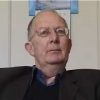Paul Rabinow on meeting Michel Foucault
When I fist came to Berkeley in 1976 I became quite friendly with Hubert Dreyfus who is a famous Heideggerian scholar but also a person who in general knows European philosophy quite well. He taught and still teaches phenomenology and various thinkers such as Martin Heidegger, Maurice Merleau-Ponty, Edmund Husserl, et cetera. I learned a great deal from him; he was a kind of a teacher of mine, and a friend. He and John Searle in the fall of 1978 were teaching a seminar together on Heidegger, Wittgenstein, Foucault and Jacques Derrida. You know Derrida and Searle were in some battle with each other at that point. They were basically saying Foucault is a structuralist. Since I spent a good deal of time with Levi-Strauss and in France I didn’t think that quite right but I didn’t care about Michel Foucault at that time one way or another. So, Dreyfus and I decided that we would talk about it some more and we would write an article. We were in the middle of that and not quite agreeing and not quite sure what we thought at which point someone mentioned that Foucault was coming to give a lecture at Stanford, which is close to Berkeley. So being a New Yorker I said to Bert: ‘now well let’s call him up and ask him what he thinks’, so he said fine: ‘if you do it, its fine’. I called him up and he agreed that if we drove him up from Stanford to San Francisco he would be happy to talk to us. So, he did and we spent five hours with him that day, and that began what turned out to be five years of very intense discussion and friendship with Foucault.
I think Foucault was very responsive to the idea that neither Dreyfus nor I were his disciples. We already had strong positions and understandings of our own; Dreyfus very much rooted in Heidegger, and me in anthropology. Foucault liked that and then he liked California. Over that period of time he came to California regularly, engaging with us and others in discussion. I spent a year and a half in Paris during that period. Dreyfus and I then wrote a book that was involved with Foucault in a very active discussion. He never said exactly whether he agreed or not but I gather we weren’t too far off because he also allowed it to be translated into French. It was a very, very wonderful five years. He was going to come to Berkeley but he got sick and died.
So that’s how I got to know Michel Foucault and became a personal friend and acquaintance. I kept up that interest very strongly. In the way that maybe Dreyfus has continued with Heidegger. I think Foucault’s work the richest body of thought in the 20th century, partly because it combines very deep philosophical thinking with empirical work. This is something that I think no one else has done. Heidegger, Wittgenstein and Richard Rorty and others who thought that this is what you should do didn’t do it themselves partially because they didn’t know how and partially for other reasons. But if you thought metaphysics was over and philosophy needed to be in the world, then I think Foucault was the one person who did that. That being said he always worked historically so wasn’t very interested in the world as it is today. I would say to some degree that’s what I have done in the following decades.
—Paul Rabinow, in an interview at Figure/Ground Communication
